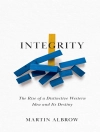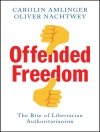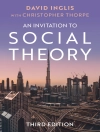What role does religion play in modern societies? Is it merely an anachronism that hinders our economic growth? Is it a kind of superstition that people should be left to enjoy in private but should refrain from discussing in public? It is no secret that the Christian churches in Western societies have massive problems – quite apart from the recent scandals. Shrinking congregations are just one sign of their diminishing relevance. But what would happen to democracy if the resonance of religion were to fade entirely?
Leading sociologist Hartmut Rosa addresses this fundamental question in a way that makes us think afresh about religion and the role it plays in our contemporary democratic societies. He argues that religion fosters a culture of dialogue, listening and reflection that allows us to form connections with others and experience the world as meaningful. This, in turn, helps citizens cultivate a democratic sensibility that can serve as an anchor in unstable times. With his characteristic clarity and insight, Rosa analyses our contemporary societies and dares to ponder what would happen if the centuries-old reservoir of wisdom embedded in religion were to be lost in an ultra-modern age.
Table of Content
Preface by Charles Taylor
Democracy Needs Religion
About the author
Hartmut Rosa is Professor of Sociology at the Institute of Sociology at the Friedrich Schiller University of Jena, and Director of the Max Weber Center for Advanced Cultural and Social Studies at the University of Erfurt, Germany.












